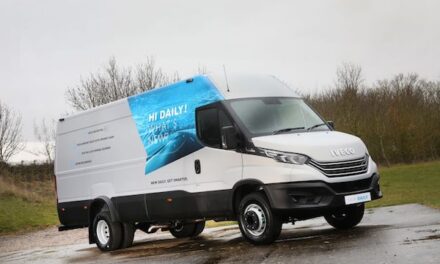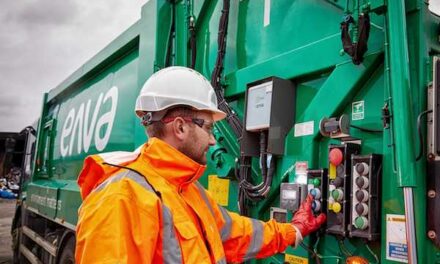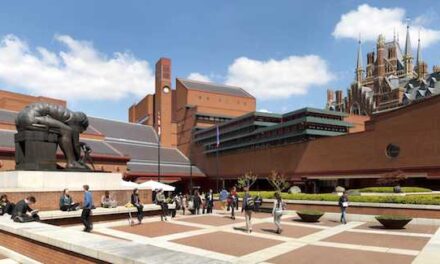Today Amazon announces the expansion of its electric cargo bike fleet to Scotland for the first time with a new micromobility delivery hub at its Baillieston delivery station in Glasgow. Part of a five-year, £300 million investment in the electrification and decarbonisation of the company’s UK transportation network, electric cargo bikes and walkers are now expected to make around 2.5 million deliveries to Amazon customers across the UK every year.
Amazon is expected to deliver hundreds of thousands of packages across Glasgow next year by electric cargo bike, which will help take traditional delivery vans off the city’s roads, alleviate city traffic congestion and improve air quality. Amazon’s electric cargo bikes and on-foot deliveries are now operational from hubs in more than 20 cities across the UK and Europe, with UK hubs in London and Manchester.
“With more than £300 million committed to electrifying and decarbonising our transportation network over the coming years, we remain laser focused on reaching net zero carbon by 2040,” said John Boumphrey, UK Country Manager, Amazon. “The new hub in Glasgow will not only bring our Scottish customers more electric-powered deliveries, but also support the local authority in looking for ways to reduce congestion and find alternative transportation methods. We look forward to expanding our e-cargo bike fleet further in the months ahead.”
Minister for Transport Fiona Hyslop MSP said: “I welcome moves by major businesses to develop micromobility delivery hubs. It’s great news for our cities – for example by choosing e-cargo bikes over vans, businesses can not only reduce carbon emissions but also help remove congestion and improve air quality. It’s a smart decision for any organisation, reducing running costs and providing couriers with a healthier and happier way to make deliveries every day. I hope that many more organisations consider the benefits of active travel to deliver goods and services. Record Scottish Government investment is transforming active travel infrastructure across the country. Companies that take advantage of this opportunity have much to gain by offering customers faster and more reliable deliveries around our largest cities.”
More than 1,000 electric delivery vans are already in Amazon’s operation on UK roads, in addition to nine fully electric Heavy Goods Vehicles, the first in Amazon’s fleet, which have replaced traditional diesel trucks. Earlier this year, Amazon announced that more than 300 custom electric vans from Rivian would be joining its delivery fleet in Germany. The company aims to have 100,000 electric delivery vehicles from Rivian on the road globally by 2030, helping to save millions of metric tons of carbon per year.
Amazon is the co-founder of and the first signatory to The Climate Pledge, a commitment to reach net-zero carbon by 2040. With more than 400 signatories, including more than 100 from the UK alone, the Pledge signatories are working together on initiatives to preserve the natural world and invest in decarbonising technologies. As the largest corporate purchaser of renewable energy globally and in the UK, in 2022, 90% of electricity consumed by Amazon globally was powered by renewable energy sources, thanks to more than 400 wind and solar projects around the world.
Scotland is home to many of Amazon’s UK renewable energy projects, with windfarms at Beinn an Tuirc in Campbeltown, Argyll, and Kennoxhead (two phases) near Redshaw, South Lanarkshire. In 2021, the first renewable energy project enabled by Amazon UK on the Kintyre Peninsula in Scotland became operational and started delivering clean energy. Amazon is purchasing 100% of the power output from this 50 MW wind farm, which is expected to deliver 168,000 MWh of clean energy annually – enough energy to power 46,000 UK homes.
In 2022, Amazon announced its largest renewable energy commitment in the UK to date – the Moray West Wind Farm – with 350 MW installed capacity. It is expected to inject up to £500 million into the local economy throughout its lifespan, and during construction will create and support more than 1,000 jobs, with 70 long term operational roles. The project also supports a number of local education and training goals, including transitioning of skilled workforce from the oil and gas sector, an apprentice programme, PhD sponsorships focused on environmental matters, and an intern programme.









